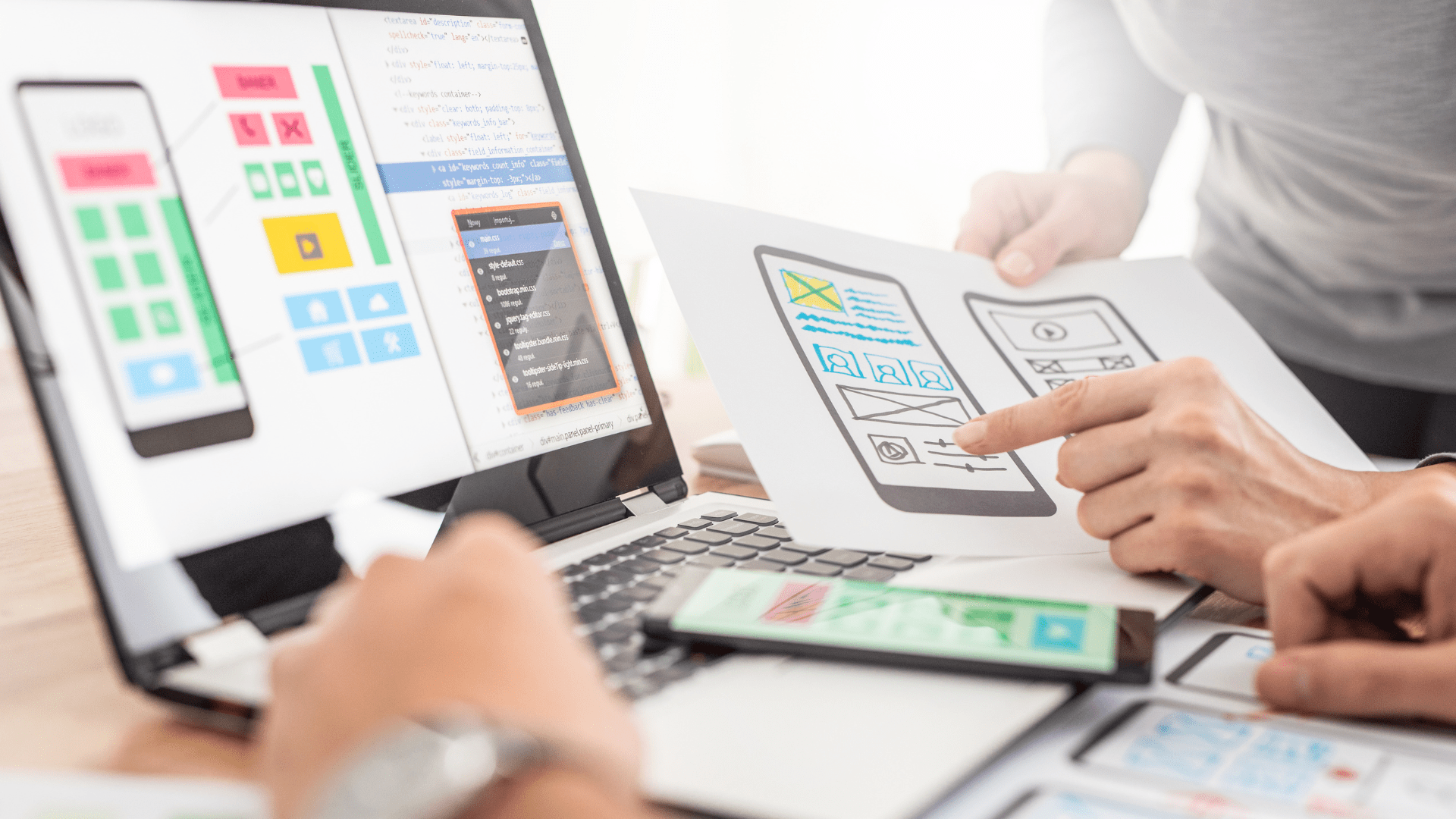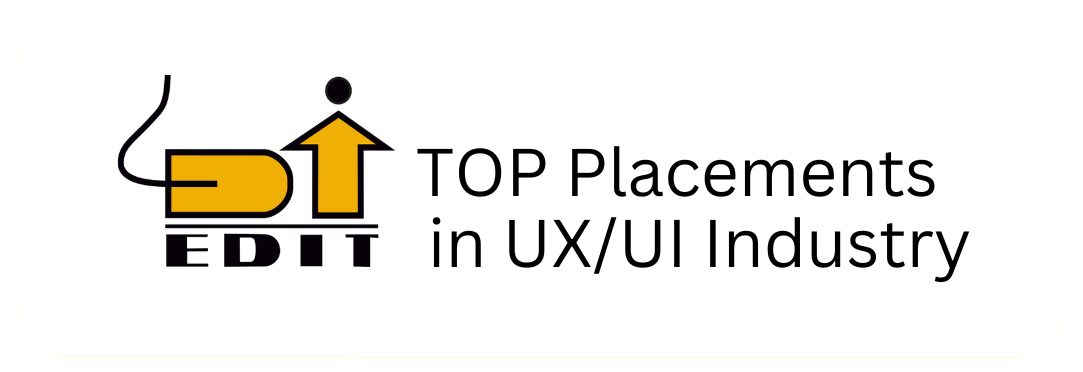UX LENS
News and Tips

Educational Technology Interfaces
Education extends beyond the traditional classroom setting. Educational technology (EdTech) is revolutionising the way we learn, offering interactive experiences, personalised learning paths, and access to a vast pool of knowledge. But for EdTech to truly thrive, user-friendly and engaging interfaces are crucial. Let’s explore how design can shape the future of EdTech but before that lets know the statistics.
Statistics:
- The global EdTech market is projected to reach a value of $ 348 billion by 2031. (Source: Global Newswire)
- Approximately 57% of schools reported that content specialists or experts from the school or district work with teachers to integrate technology into classes for teaching and learning. Schools also utilise experts in educational technology (61%) and other classroom teachers with technology training (65%). Additionally, 76% of schools involve library media experts in this process.( Source: NCES)
Captivating Young Minds:
Children are natural explorers. Educational Technology Interfaces need to cater to their curiosity and playful nature. This means:
- Interactive elements: Games, simulations, and drag-and-drop activities can transform passive learning into active exploration.
- Visually appealing design: Bright colours, engaging characters, and age-appropriate animations can keep young learners motivated and focused.
- Intuitive navigation: Simple menus, clear instructions, and age-appropriate language ensure a smooth learning experience, even for younger users.
Empowering Educators:
Teachers are the cornerstone of learning. Great educational interfaces support—not replace—them. Platforms should allow teachers to:
- Allow teachers to personalise learning experiences by incorporating their own curriculum materials, assessments, and multimedia content.
- Provide clear dashboards that track student progress and identify areas where they might need additional support.
- Ensure EdTech platforms integrate seamlessly with existing classroom management systems and communication tools.
Accessibility for All Learners:
EdTech should be inclusive and cater to diverse learning styles and abilities.
- Offer options for visual, auditory, and kinesthetic learners to ensure everyone can grasp concepts effectively.
- Make learning materials accessible to students with hearing or visual impairments.
- Allow students to progress at their own pace by offering adjustable difficulty levels within lessons and activities.
The Future of EdTech Interfaces:
As technology advances, EdTech interfaces will become even more immersive and personalised:
- Virtual Reality (VR) and Augmented Reality (AR): Imagine exploring the pyramids of Egypt in VR or dissecting a virtual frog in AR. These technologies can create engaging and interactive learning experiences.
- Adaptive Learning: AI-powered platforms can personalise learning journeys based on individual student strengths, weaknesses, and learning styles.
- Gamification: Incorporating game mechanics like points, badges, and leaderboards can motivate students and make learning more fun.
Conclusion:
At EDIT Institute, we understand that well-designed educational technology interfaces are key to making learning more accessible, engaging, and impactful. Through UX, accessibility, and gamification, EdTech can reach its full potential—empowering both students and teachers to succeed in a digital-first world..
Placement of the week

Harshida Kaushik Kapopara- B.Sc (Microbiology)
Terado Engineering pvt ltd- UXUI Designer
Switching to UI/UX design from a different field brings lots of chances to grow. EDIT course teaches practical skills and changes your career path. With hands-on projects and real-world knowledge, it helps you build a strong portfolio. EDIT’s support, like interview prep and portfolio help, is key in finding a job. Plus, the program focuses on real-life learning, making it great for anyone starting in UI/UX design.
Educational Technology Interfaces
Education today extends far beyond the traditional classroom. Educational technology interfaces are revolutionising how we learn by enabling interactive experiences, personalised learning paths, and access to endless resources. At EDIT Institute, we explore how UX design and digital accessibility can shape the future of EdTech through meaningful interfaces. But first, let’s look at what the data says.
Statistics:
- The global EdTech market is projected to reach a value of $ 348 billion by 2031. (Source: Global Newswire)
- Approximately 57% of schools reported that content specialists or experts from the school or district work with teachers to integrate technology into classes for teaching and learning. Schools also utilise experts in educational technology (61%) and other classroom teachers with technology training (65%). Additionally, 76% of schools involve library media experts in this process.( Source: NCES)
Captivating Young Minds:
Children are natural explorers, and EdTech interfaces must appeal to their curiosity and imagination. Effective educational technology interfaces for younger users include:
- Interactive elements: Games, simulations, and drag-and-drop activities can transform passive learning into active exploration.
- Visually appealing design: Bright colours, engaging characters, and age-appropriate animations can keep young learners motivated and focused.
- Intuitive navigation: Simple menus, clear instructions, and age-appropriate language ensure a smooth learning experience, even for younger users.
Empowering Educators:
Teachers are the backbone of education. EdTech interfaces should empower them, not replace them.
- Allow teachers to personalise learning experiences by incorporating their own curriculum materials, assessments, and multimedia content.
- Provide clear dashboards that track student progress and identify areas where they might need additional support.
- Ensure EdTech platforms integrate seamlessly with existing classroom management systems and communication tools.
Accessibility for All Learners:
EdTech should be inclusive and cater to diverse learning styles and abilities.
- Offer options for visual, auditory, and kinesthetic learners to ensure everyone can grasp concepts effectively.
- Make learning materials accessible to students with hearing or visual impairments.
- Allow students to progress at their own pace by offering adjustable difficulty levels within lessons and activities.
The Future of EdTech Interfaces:
As technology advances, EdTech interfaces will become even more immersive and personalised:
- Virtual Reality (VR) and Augmented Reality (AR): Imagine exploring the pyramids of Egypt in VR or dissecting a virtual frog in AR. These technologies can create engaging and interactive learning experiences.
- Adaptive Learning: AI-powered platforms can personalise learning journeys based on individual student strengths, weaknesses, and learning styles.
- Gamification: Incorporating game mechanics like points, badges, and leaderboards can motivate students and make learning more fun.
Conclusion:
Well-designed EdTech interfaces have the power to unlock a world of knowledge and ignite a passion for learning. By prioritising user experience, accessibility, and engagement, EdTech can revolutionise education, making it more effective, inclusive, and ultimately, a transformative experience for learners of all ages.
Placement of the week

Harshida Kaushik Kapopara- B.Sc (Microbiology)
Switching to UI/UX design from a different field brings lots of chances to grow. EDIT course teaches practical skills and changes your career path. With hands-on projects and real-world knowledge, it helps you build a strong portfolio. EDIT’s support, like interview prep and portfolio help, is key in finding a job. Plus, the program focuses on real-life learning, making it great for anyone starting in UI/UX design.
